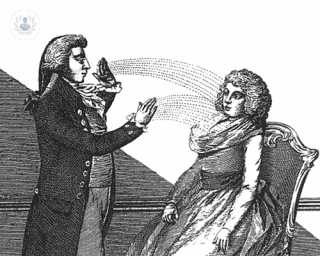Clinical hypnosis
What is clinical hypnosis?
The word hypnosis derives from the Greek word for “sleep”. However, in clinical hypnosis, the patient is actually in an altered state of consciousness between sleep and wakefulness. With certain stimuli, mental processes are activated, and the specialist can treat various psychological disorders such as anxiety and stress.

Why is it done?
Clinical hypnotherapy helps the patient to understand, accept, and handle situations that cause any type of suffering. It’s not always intended to cure the patient of an illness or unpleasant situation, and is sometimes used to alleviate the suffering caused by it. By doing so, the patient can improve their ability to cope with the illness or unpleasant situation.
Clinical therapy is used to treat suffering caused by:
- Necessary medical treatments
- Injections
- Transfusions
- Childbirth
- Chronic pain, such as migraine and back pain
- Depression
- Alcohol and tobacco addiction
- Anxiety disorders
- Eating disorders
It can also be used as an anaesthesia in minor dental or surgical procedures.
What does clinical hypnotherapy involve?
During clinical hypotherapy, the therapist brings the patient into a hypnotic or trance-like state. They will use words and associations of ideas that will change the patient’s thought patterns or behaviours. The patient's mind and attitude play a key role in the success of this therapy - they must have the desire to participate and be fully guided during the sessions.
Which specialist specialises in clinical hypnosis?
Some psychologists with additional recognised training can offer clinical hypnotherapy.








